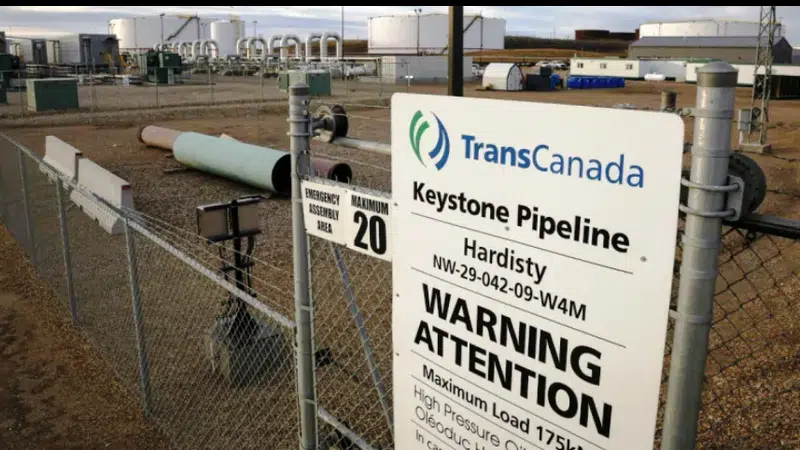
Keystone XL pipeline permit cancelled by U.S. judge over endangered species concerns
A U.S. judge canceled a key permit Wednesday for the Keystone XL oil pipeline that’s expected to stretch from Canada to Nebraska, another setback for the disputed project that got underway less than two weeks ago following years of delays.
Judge Brian Morris said the U.S. Army Corps of Engineers failed to adequately consider the pipeline’s effect on endangered species such as pallid sturgeon, a massive dinosaur-like fish.
The ruling, however, does not shut down work that has begun at the U.S.-Canada border crossing in Montana, according to attorneys in the case. Pipeline sponsor TC Energy will need the permit for future construction across hundreds of rivers and streams along Keystone’s 1,200-mile (1,930-kilometer) route.
A spokesman said TC Energy was reviewing the ruling.
